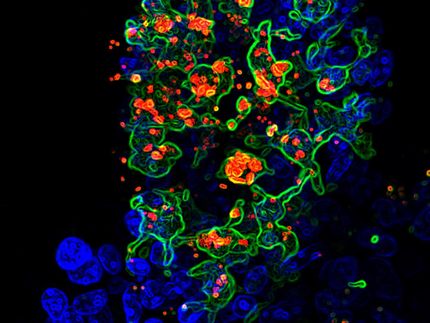Ecology insights improve plant biomass degradation by microorganisms
Advertisement
microbes are widely used to break down plant biomass into sugars, which can be used as sustainable building blocks for novel biocompounds. Getting the right microbial community for this process is still a matter of trial and error. New insights by University of Groningen microbial ecologist Dr Diego Javier Jiménez and colleagues could make a rational design possible.
'The key is in the dynamics', says Jiménez. The long and recalcitrant biopolymers in plant material are broken down in different steps, something that has been overlooked. The most common way to produce a microbial community to degrade plant biomass is the dilution method: a flask with plant material in a growth medium is inoculated with a sample of an environmental microbiome (soil for instance). After an incubation period, some of the fluid is transferred to a fresh flask with plant biomass. After a number of these steps, a stable microbial community will have formed.
Different phases
'The general idea in the field is that the most abundant organisms are the most active in degrading the plant biomass', explains Jiménez. 'But our previous work shows that this is not always the case.' Jiménez studied the dynamics of microbial populations during plant biomass degradation. 'We noticed that there are different phases. In the first phase, the backbones of the plant polysaccharides are cleaved. In the next phase, side chain linkages are cleaved.' In the final phase, the remaining molecules are broken down into simple sugars.
'We noticed that different microbial species are important in the different phases, which results in a successional pattern', says Jiménez. 'The literature does not really explain this ecological aspect.' Jiménez and his colleagues developed a conceptual model to describe these dynamics, which he has now published. 'It also means that different enzymes are important at different stages. If you use purified enzymes to degrade plant biomass, you should take this into account. You shouldn't just put them all in there at once.'
The new conceptual model could help with the design of optimized microbial communities for the degradation of plant biomass, says Jiménez. 'I trained as an industrial microbiologist at the Pontificia Universidad Javeriana in Colombia, but I took my PhD in the department of Microbial Ecology, here at the University of Groningen. This gave me unique experience in linking these two fields. My aim is to use insights from Microbial Ecology to improve the industrial breakdown of plant biomass into sugars.'





















































